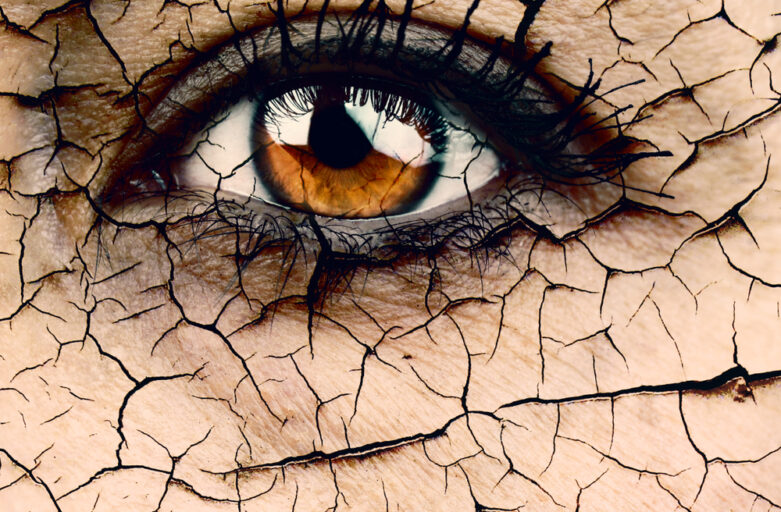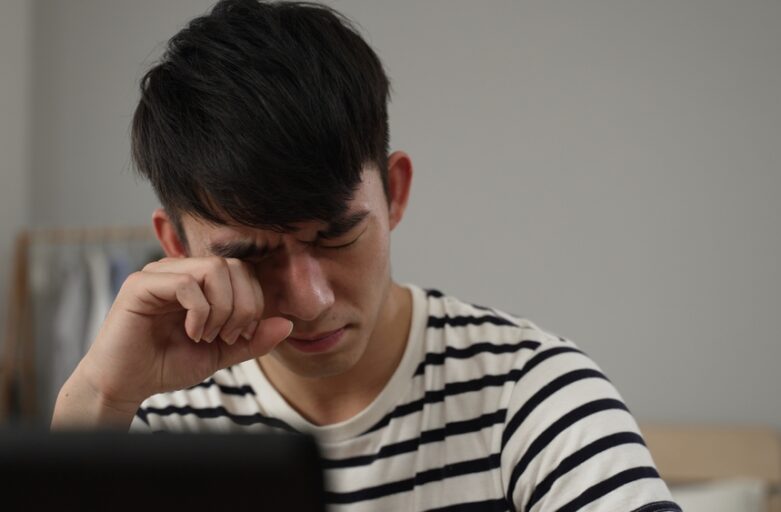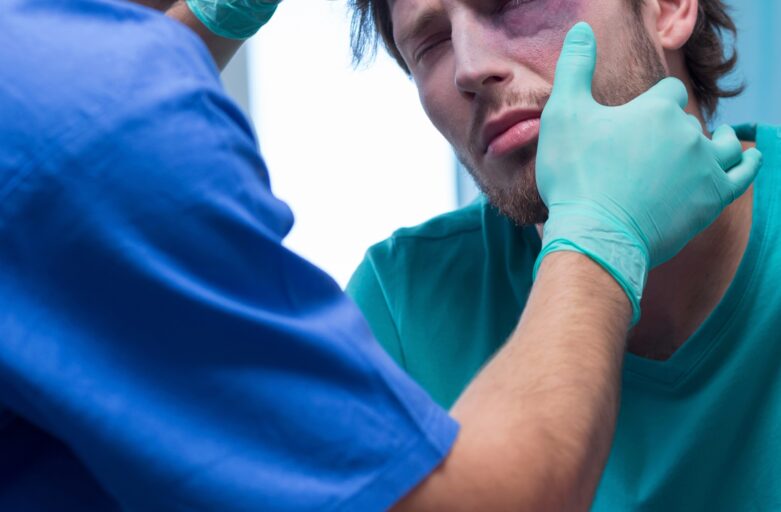At Boxer Wachler Vision Institute, we believe that eye health is not just about regular checkups and vision correction procedures. What you eat plays a critical role in maintaining your eyesight and preventing age-related eye conditions. Just like the rest of your body, your eyes require specific nutrients to function optimally. In this blog, we’ll explore key nutrients and foods that support eye health, based on reputable research and expert recommendations.
Category: Eye Health
Reasons You May Experience Dry Eye
Are you frequently bothered by irritated, burning eyes? There is a good chance you have chronic dry eye, a common condition that affects eyes that are unable to sufficiently lubricate themselves, either because of poor quality tears or inadequate tear production. Dr. Brian Boxer-Wachler has treated dry eye throughout his career with treatments he pioneered, which has helped patients like you to lower their incidence of eye discomfort. Below, he shares some of the reasons dry eye occurs. Read more
When Does Dry Eye Require Treatment?
Most people have itchy, irritated eyes from time to time, but when it happens frequently, it can be a real hassle. Chronic dry eye affects tens of millions of American adults, although there are varying degrees of severity. At the Boxer Wachler Vision Institute, Dr. Brian often hears from patients with dry eye who are unsure whether their symptoms warrant treatment. Read on to learn his recommendations on this subject. Read more
Why You Should Never Rub Your Eyes
At the start of the coronavirus pandemic, amidst all the reminders to not touch your face, you may have noticed that you unconsciously rub your eyes more than you previously realized. This instinct to touch your eyes has a basis in science: rubbing can activate tear flow to improve the lubrication and relieve a dry, itchy feeling.
Despite the momentary relief, this urge to rub your eyes is not healthy. In this blog, premier ophthalmologist Dr. Brian Boxer Wachler, known to many as “the surgeon’s surgeon,” explains why you should dispense with this habit. Read more
Eye Problems That Sunglasses Can Help Prevent
Wearing the right sunglasses has less to do with style and more to do with eye health. A good pair of sunglasses can protect your eyes from vision-threatening conditions down the road. Dr. Brian Boxer Wachler at the Boxer Wachler Vision Institute in Beverly Hills explains how sunglasses can prevent certain eye issues. Read more
Habits That Could Be Harmful to Your Eyes
Although it is reassuring to know that the experts at Boxer Wachler Vision Institute are available to assist you following an ocular crisis, your best course of action is to try to avoid eye emergencies in the first place. To protect the health of your eyes, Dr. Brian suggests re-examining some of these common bad habits: Read more
Fit Food & Vitamins for Your Vision
A new year is here and many of us are thinking of ways to stay fit by means of exercise and healthy eating. We can also improve our vision health by eating better and getting the right amount of vitamins daily. There are several foods we eat every day that can improve your overall eye health. Vitamins like Riboflavin, Vitamin D, and even Vitamin K can help your vision as well.
Foods High in Essential Vitamins
Vitamin D: Remembering that you need a daily allowance of 600IU daily, consider eating the below foods.
• Fatty Fish
• Mushrooms
• Whole Grain Cereals
• Tofu
Riboflavin or (Vitamin B2): The average person needs at least 1.7MG of Riboflavin on a daily basis to maintain proper eye health and improve metabolism. There are injections which can help supplement this vitamin, however, eating them in your diet naturally is a better source. You can find Riboflavin in:
• Cheese
• Almonds
• Beef & Lamb
• Eggs
Vitamin K: The recommended daily allotment of Vitamin K is 80MG. Vitamin K has antioxidants that can help with age-related eye conditions over time protecting your eyes. Below are a few food items that contain Vitamin K.
• Green Leafy Vegetables
• Herbs (Basil)
• Chili Powder
• Asparagus
• Okra
For more information on vitamins that protect your eye health contact your eye care professionals or visit www.ioptimalhealth.com
Understanding Dry Eye During the Spring and Summer Months
Do you suffer from dry, itchy and/or red eyes? Has your eye care professional told you that you have Chronic Dry Eye? If you’ve already been diagnosed with Dry Eye, the spring and summer months can be especially troubling.
There are several reasons Dry Eye can be affecting you worse in the hot spring and summer months than in the colder winter months.
Below are a few reasons Dry Eye increases:
Exposure to Sunlight – For those who are active, dry eyes can be especially troubling in the spring and summer due to excessive exposure to sunlight without the proper eye protection. Continued exposure to sunlight can cause more difficulty with vision because the tear film can evaporate more quickly.
Environmental Exposures – With warmer weather, often we go outside more. Outside elements can also cause more problems in the spring and summer months because of decreased tear film.
Less Blinking – When we blink we essentially help the tear film cover the eyes. If we blink less, we have less tears covering the eyes.
There are new treatment options available to help those with chronic Dry Eye.
One such treatment for dry eyes is LipiFlow®.
What is Lipiflow®?
The new treatment LipiFlow® uses specialized goggles and heat to help unclog the Meibomian glands within the eyelids. Typically there are between 30-40 Meibomian glands that produce oils which help tears from evaporating off the eyes. Depending on how many are clogged upon evaluation will help determine if you are a good candidate for the LipiFlow® procedure.
Learn more about treating your dry eyes:
8 Tips for Healthier Eyes
The Doctor’s Orders To A Successful Valentine’s Day
As a kid I loved getting all those hand-cut, pastel cardboard Valentine’s Day cards from my classmates. Didn’t you love that? It put a big smile on my face, especially when I got a card from Leisl Herman, who I had a crush on. Somewhere between 5th grade and college the teachers sadly dropped that activity. If you’re reading this, then you’re probably no longer in grade school getting those warm, fuzzy valentines with the heart shaped crunchy candies. But that doesn’t mean you can’t have a little fun and smile around February 14th.
Get your smile ready. Did you ever think that I would also be a poet? This limerick for Valentine’s Day just popped in my head when I was working out. I had a wee bit of expert refinement from Pat Myers, “Empress of the Style Invitational” at the Washington Post.
There was a lass with eyes of blue –
Word spread of her dazzling hue!
At times she was taken,
True love was forsaken,
Now wiser, she seeks serious woo.
Now that I’ve got you smiling, be sure to spread the smiles. Wish someone, anyone, “Happy Valentine’s Day!” Even better, then give ‘em a good hug. Hugs are good for your health. It’s all about human touch. In medical school I learned of a study that found heart attack patient survival in the intensive care unit was higher in in the group where the nurse held the patients’ hand vs. no hand holding. So hug away on Valentine’s Day!
Another prescription that I can offer is to have some dark chocolate – 100% guilt-free. There are health benefits to the melt-in-your-mouth stuff too:

1. Enhance Eyesight
2. Lower Blood Pressure
3. Reduce Stress
4. Lessens Risk of Heart Failure
5. Provide Sun Protection
6. Access Higher Intelligence
7. Deliver Powerful Antioxidants
Have a wonderful day filled with love, poems and, of course…dark chocolate!









